Complaints of ‘foreign intervention’ made over rainbow flag in Hong Kong
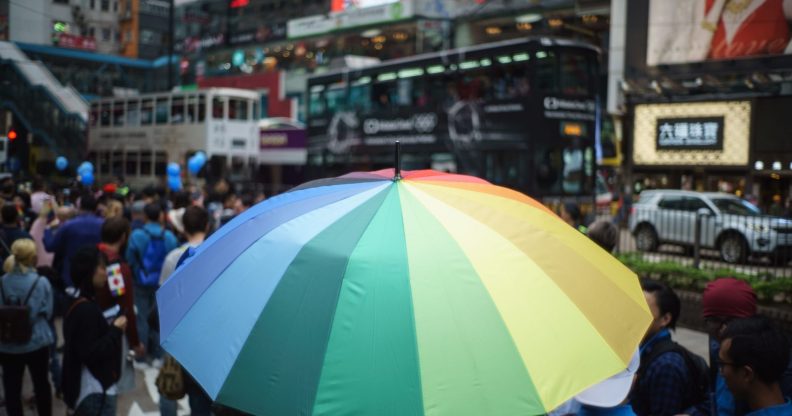
The new survey marks a significant shift in public opinion on gay rights in Hong Kong. (Getty)
Complaints of “foreign intervention” have been made after the British consulate in Hong Kong raised a rainbow flag.
A complaint has been made by Liberal Party district councillor Dominic Lee Tsz-king.
He said “foreign intervention” was at play when the British consulate-general in the city raised its rainbow flag.
Lee posted a number of photos of the rainbow flag on Facebook.
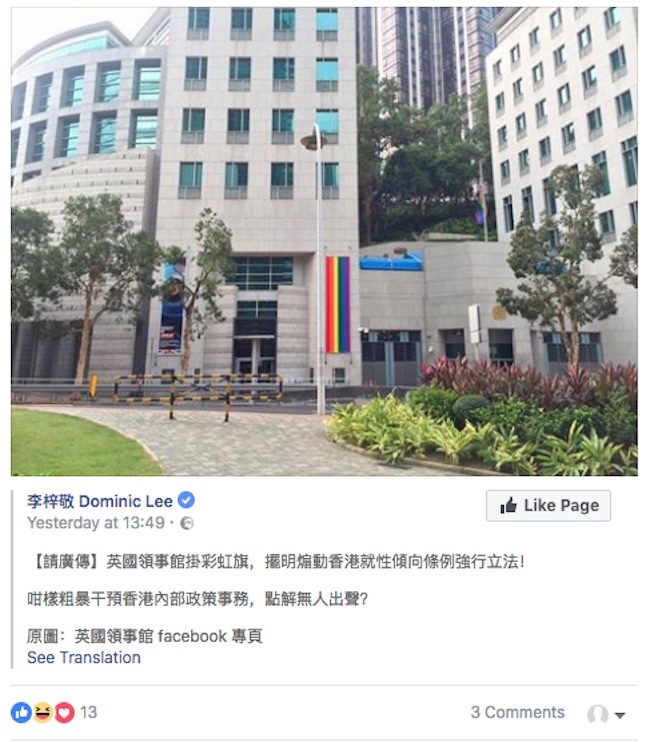
“It’s obviously instigating Hong Kong to forcibly [enact] the Sexual Orientation Discrimination Ordinance! Why is there nobody speaking out against such interference in Hong Kong’s internal affairs?” Lee wrote.
He cited China’s ministry of foreign affairs, saying: “China values relationship with the UK, and we are ready to continue developing our relationship with the UK following the principles of mutual respect, equality and mutual benefit, and non-interference in each other’s internal affairs.”
The complaint was made a day after tens of thousands have marched for LGBT+ equality in Hong Kong.
More than 10,000 people took to the streets of the city for its ninth annual Pride parade.
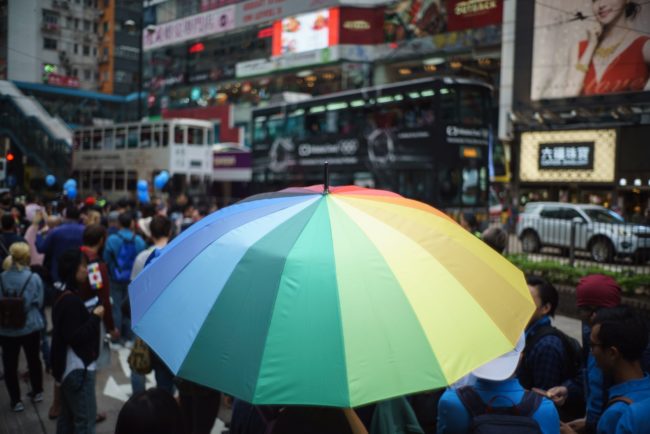
Getty
The theme for this year’s Pride was ‘Turn the tide, walk with Pride – discrimination says goodbye’.
A giant rainbow flag was carried from Victoria Park in Causeway Bay to Edinburgh Place in Central.
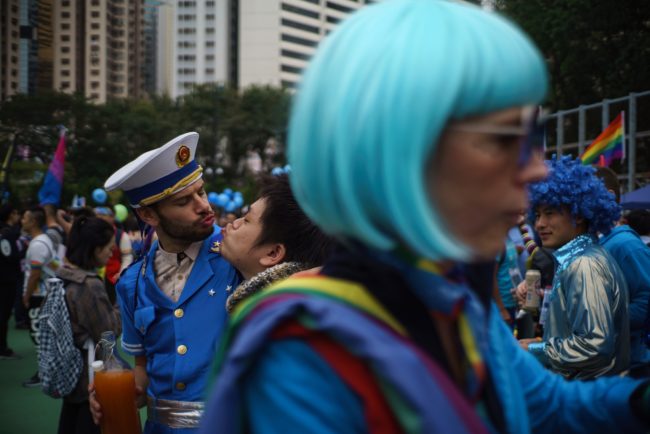
Getty
The city last month became the first Asian city to be chosen to host the Gay Games.
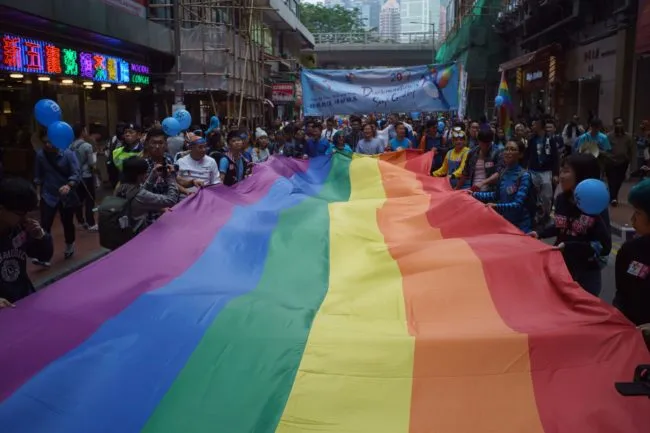
Getty
The territory was chosen for the 2022 event over competing bids from Washington DC and Guadalajara, in Mexico, by the Federation of Gay Games.
This is despite the autonomous region being controlled by China, which has a terrible LGBT rights record.
Chinese authorities announced a ban on gay online content earlier this year.
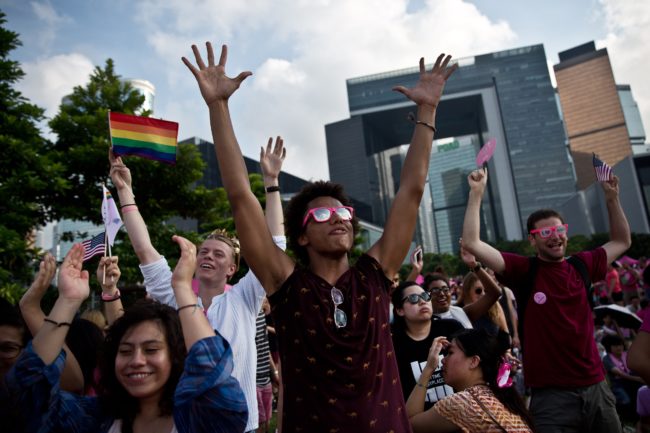
(Getty)
And in May, an LGBT conference in the country was cancelled after police detained nine LGBT activists and told them LGBT events were not welcome in their city.
The Gay Games decision, announced yesterday in Paris, produced an ecstatic reaction from Hong Kong’s 13-member bid team, with screaming, hugging and cheering greeting the news.
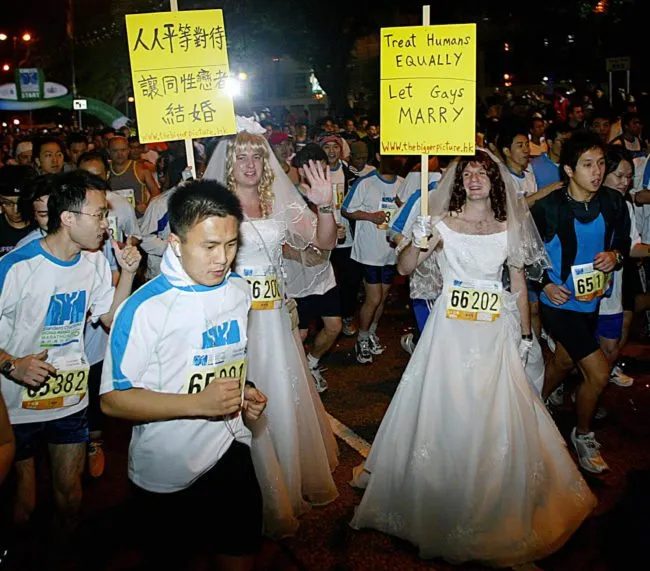
(Getty)
Bid chair Dennis Philipse told the South China Morning Post that he was “proud” of the result.
“We fought tirelessly and are elated to bring the games to Asia for the first time. Thank you all for your love and support,” he added.
The win reflects recent progress made in the formerly British territory.
Last month, a British lesbian who was not allowed to work and had to leave her wife every six months won legal recognition of their union from Hong Kong’s Court of Appeal.
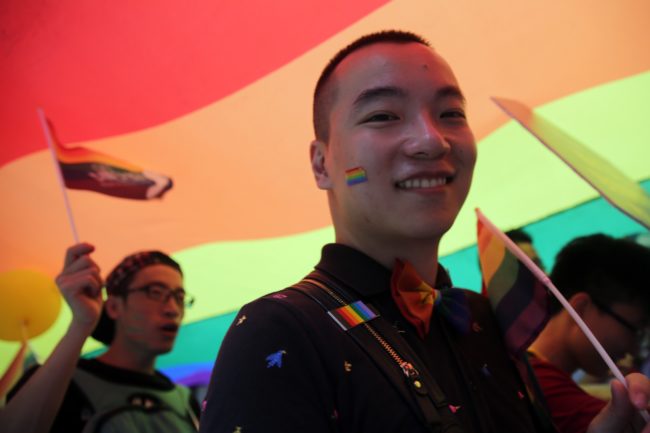
(Getty)
And less than two weeks before that, the lifetime ban on gay men donating blood was lifted.
Men are now able to give blood as long as they have not had sex with another man in the past 12 months.
However, same-sex marriage is not legal in the region, and anti-discrimination laws are lacking too.
In July, the territory’s equality watchdog said he felt he “could do better” in protecting LGBT and ethnic minorities.
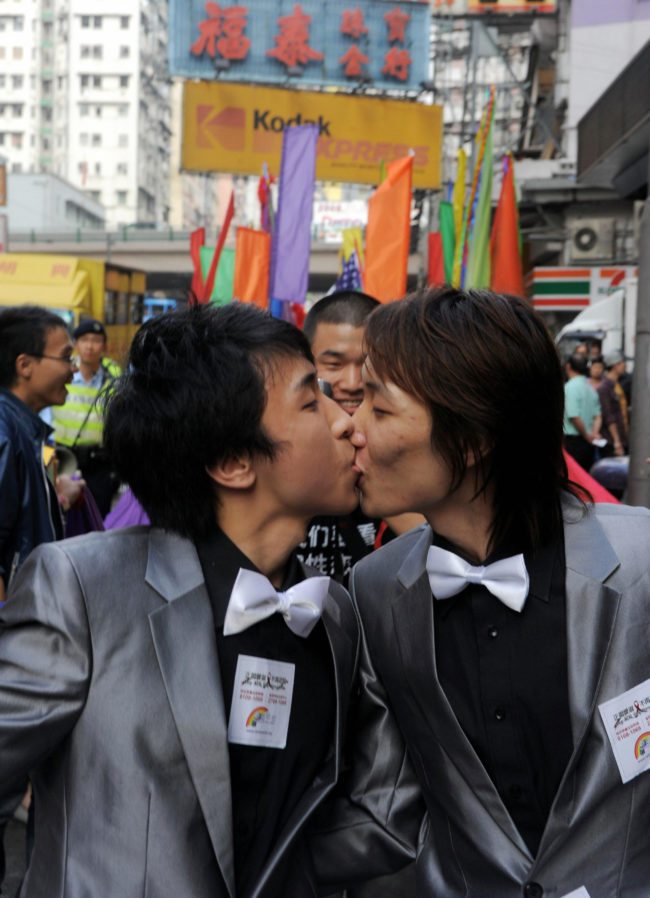
(Getty)
And the government’s tepid response to the Gay Games announcement – not condemnatory, but certainly not enthusiastic – spoke volumes.
It told Reuters that it “notes” the decision.
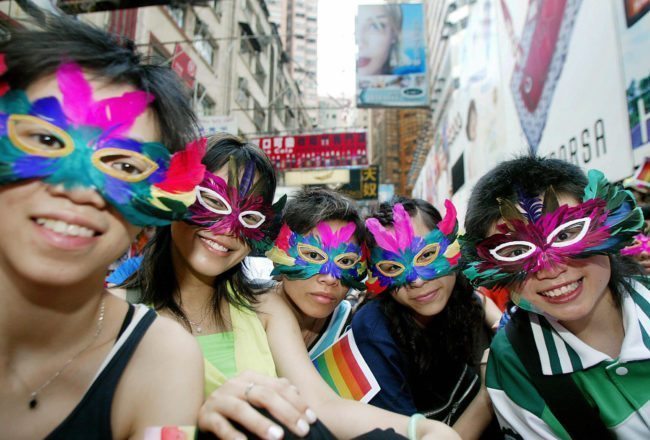
(Getty)
The government added that it was “committed to promoting equal opportunities and fostering in the community the culture and values of inclusiveness and mutual respect.”
Hong Kong’s bid team expected the Gay Games, an event first held in 1982, to attract more athletes to Hong Kong than the 15,000 participants expected for next year’s Games in Paris.
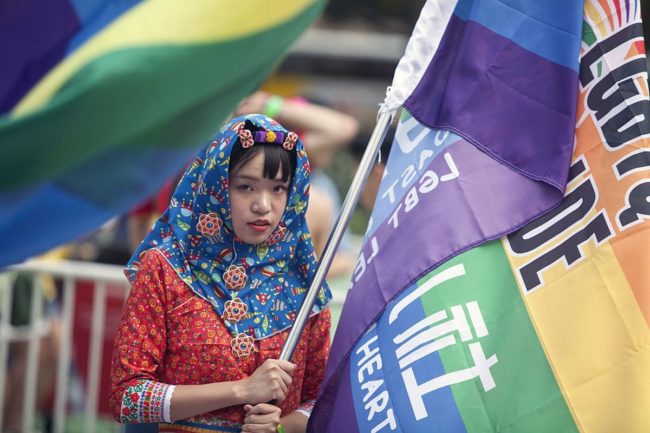
(Getty)
The team also predicted a HK$1 billion (around £100 million) boost to the economy.
Alfred Chan, chairman of Hong Kong’s Equal Opportunities Commission, called the move “a big step forward for Hong Kong itself to be able to win this world game.
“It is also a big step for diversity inclusion,” Chan added.

